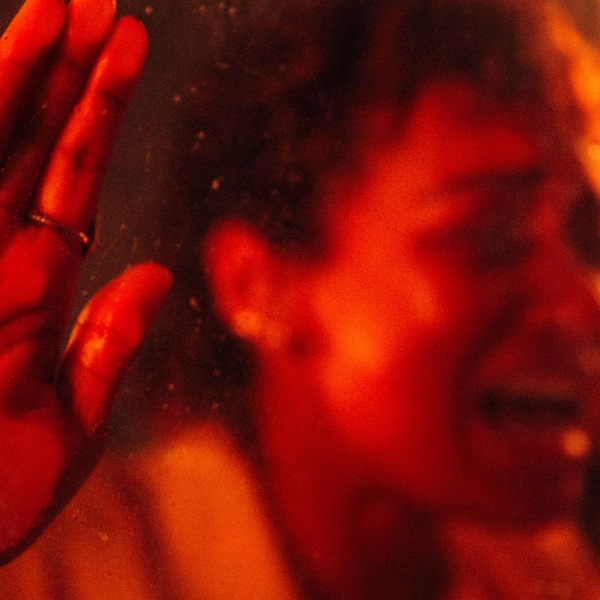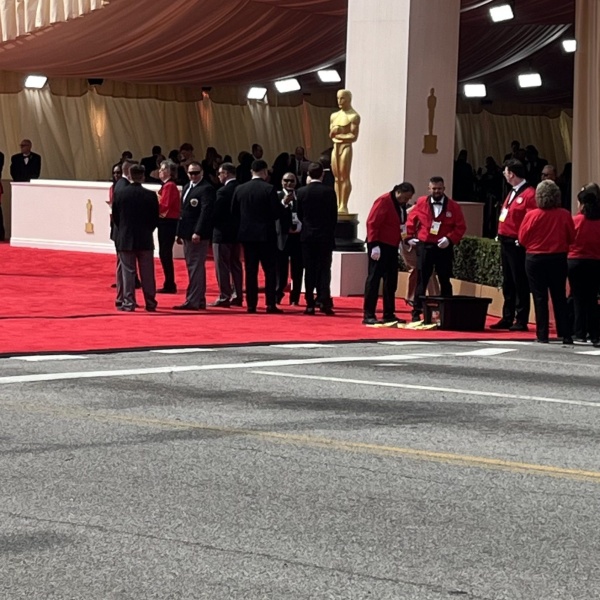The smell of the chocolate chip cookies is intoxicating. Juliette Binoche eats several as we talk at the London Hotel about the experience of shooting Anh Hung Tran’s celebration of sumptuous cooking, “The Taste of Things” (February 9, 2024, IFC Films), which won the Best Director award at Cannes and beat out “Anatomy of a Fall” to become France’s official Oscar submission. Binoche scoffs at the suggestion that the 19th-century romance about Eugénie (Binoche), who cooks for gourmet Dodin (Benoît Magimel), is in any way stuffy or conventional.
“It is showing this lifestyle that is different from nowadays,” she said. “It has to do with another rhythm, a slow motion in the way of living, taking in the environment, taking in feelings, taking in what you do. I don’t live this kind of life, and a lot of people don’t. And this film is very provocative. It looks like she is submissive to him, but actually she’s not. So don’t judge a book by its cover.”
Binoche had admired Tran’s Oscar-nominated “The Scent of Green Papaya” (1994) when she first met him. “I was blown away by his art, his ability to tell a story.” Tran visited her on the set of a Hou Hsiao-hsien film she was shooting. “And he was warm. And we talked about making a film together.”
They met again when he gave her the script of his adaptation of the Marcel Rouff classic novel, “La Vie et la passion de Dodin-Bouffant, gourmet (The Passionate Epicure).” The script centered on the novel’s main character, the gourmet Dodin-Bouffant, and like the book, starts when Eugénie dies.
That’s why Tran’s first script did not pass muster with Binoche. “I said to him, ‘I’d love to do the film. But you’ve got to develop a little bit the female character. If you want me to have the purpose of being in this film, you’ve got to devote a little bit to the relationship between Dodin and her. When I do a film I want to put my heart into it and my time and everything I can.’”
Tran heard her. Within a month he rewrote the script as a prequel of the novel, including Eugénie, her extraordinary cooking, and the Dodin relationship. “He really centered on love, this sharing relationship through an art form which is culinary art,” she said. “That was the film we shot. It’s a fairy tale story. It’s not a true story. For me it’s an analogy between director and actors. The director has the idea as the chef or the maker of those recipes, but the cook does it for real, and the actor is the cook, incarnating an idea.”

The extraordinary opening sequence showcases Eugénie at the top of her powers, cooking an exquisite, mouth-watering meal. Shot in long takes, the sequence was choreographed so that she seamlessly moves the vegetables plucked from the garden and freshly butchered meats from sink to cutting board to flaming stove to table.
“He sent me the videos of [Chef] Pierre Gagnaire cooking,” she said. “Cooking what we’re supposed to cook. So I had an idea of what came before and after and after, because it’s like an architecture, you’ve got to put it together as a chef or cook. And so I studied that on the video. And then we just had one day of rehearsal before we shot.”
It made it easier that Binoche had no dialogue. “I just needed to know what came before and what comes after,” she said. “We kept being cautioned not to burn your fingers. We were fighting about dish towels. ‘This is mine! Don’t take it because I need it for that moment when I take this very hot thing.’ Because in the shot, you don’t want to screw it up, just for the sake of everyone and the film and everything. Then we organize our dish towels. And after that it was fine.”
Eugénie and Dodin have been working and living together for 20 years. And yet she never marries him. “Her resistance, it keeps her freedom and it keeps a vibrant relationship,” said Binoche. “That is the desire that is still happening between them. Because if you say ‘yes’ to everything, you don’t know how long it’s going to last. And it’s her way probably to stay at the top of the game, to be still in love, like at the beginning.”

When Dodin realizes that she’s ill, he cooks for her for the first time. “That’s seduction,” said Binoche. “For me, as a woman when I see a man cooking it always opens my heart.”
Binoche was with Magimel for several years, but they never married. They had a daughter together, who is now 23. But they did not stay close. “I would say they were not easy years,” said Binoche. “And this film was a big surprise to me. That he said ‘yes’ to do it. And that we’re able to express through it. I worried how it was going to evolve, of course. Because it’s as if I didn’t know him anymore, because we met like 25 years before. I knew a little bit but not a lot.”
Binoche did not resist working with Magimel. “Let’s see what fate does,” she thought at the time. Over her long career of almost 100 films, including two Oscar nominations and one win (“The English Patient”), Binoche has only struggled with two difficult costars during filming. One was Jeremy Irons on Louis Malle’s “Damage.” And the other was a controlling Vincent Lindon on Claire Denis’ “Both Sides of the Blade.” Both films turned out well.

So she waited to see how things would go. “And working in front of the camera with the director, things are being revealed,” she said. “And I was surprised at how well we stood for each other. And we helped each other and love came through. Because it was not our words, it was easier in a way, because the art form allows you to go on another level. So it’s not like words in your face or feelings that are coming directly from you. You use a written script in order to say things that you’ve never said before, or didn’t have the occasion to say. It’s an arrow through the words of somebody else, you telling the person you cannot talk to. It was like a gift in a way, on each side. There’s something human in being able to transform things, the not-said things being said through emotions and feelings and giving the story.”
Next up: Binoche has now filmed two series, “The Staircase,” and the upcoming Apple show “The New Look,” about the early years of Christian Dior (Ben Mendelsohn) and Coco Chanel, which shot for seven months. She reunites with “The English Patient” star Ralph Fiennes on Uberto Pasolini’s “The Return,” based on Homer’s “The Odyssey”: they play Odysseus, who is returning to Ithaca after 20 years, and his long-suffering wife, Penelope.






